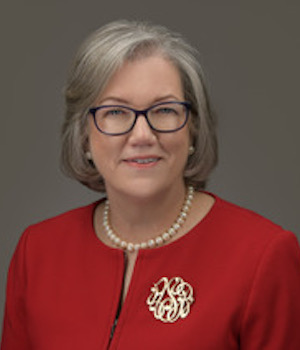Senior International Development Leader and Attorney
Ms. Anne Simmons-Benton is a senior international development leader and attorney with more than 30 years of experience in government, private sector, and academia. She has worked in more than 32 countries, managing and leading complex, critical federal government priorities, including the World Trade Organization’s (WTO) Integrated Framework for Least Developed Countries, the Presidential Initiative on Trade Capacity Building, including negotiations on the Central American Free Trade Agreement, the US Contribution to the Stability Pact in the Balkans, and the United States Agency for International Development (USAID) Regional Investment Initiative under Gore Chernomyrdin in Russia. She brings a strong passion and enthusiasm for advancing equity for women, and promoting social justice and the rule of law around the world.
Anne is currently a Principal at Deep Water Point and Associates, the Co-Head of the US Delegation to the Women20 (W20), an official engagement group of the G20, the Deputy Chair for the Society for International Development – US and a Board Member for the Mines Advisory Group – US.
Anne earned her BS in foreign service from the Georgetown University Edmund A. Walsh School of Foreign Service and her JD from Antioch School of Law (DC). She holds a Change Management Advanced Practitioner (CMAP) Certificate from the Georgetown University McDonough School of Business. She is the recipient of numerous awards, including a USAID Certificate of Appreciation, Superior Group Award, and Meritorious Unit Citation Award. She is also a licensed attorney. Anne and her husband, Jonathan Benton, have three adult children and three grandchildren.
Vision Statement
As Chair-Elect, my goal will be to learn from and support the current Chair, Jill Christianson, in her remaining term so that transition will be seamless. This will include attending as many UNA-NCA events as possible during the transition time, familiarizing myself with the staff and operational procedures and issues, and delving into the work of the Board Committees and meeting the Board Members and Past Presidents.As Incoming Chair, I will work to ensure that the strategy is being fulfilled and updated.
The priorities of the UNA-NCA Mission are clear and I think the interesting challenge is how to continue to implement the traditional activities and provide new ways to adapt to current situations to advance the mission.
1. Build Support for the United Nations and Connect the National Capitol Area’s Residents and Organizations to the Work of the United Nations.
Utilizing and leveraging the vast cadre of organizations and experienced individuals in the Capitol Area, we can draw upon that strength to provide robust UNA-NCA programs to leverage resources for educational as well as fundraising purposes.
2. Enhance Membership and Intergenerational Membership
As a membership organization, it is necessary to expand membership and meet the needs of the members while advancing the organization. In addition to expanding membership, adding diversity, equity, inclusion and accessibility to the lens of membership will be a priority. I suggest including the historically black colleges and universities, and minority service institutions in the region to diversify membership. Also bringing in senior members such as retired foreign service officers, United Nations and World Bank Staff, OAS, USIP, etc. as members will be useful in developing mentors to enrich the experience of the younger members and activities.
3. Build a Comprehensive Partnership Network
I suggest a twofold approach for continuing the growth of the Partnership Network while reaping benefits for UNA-NCA and individual members. Looking at providing reciprocal benefits for partners is also a way to attract new partners, additional donors and members.
4. Creating an Increasingly Efficient, Integrated and Financially Sustainable Organization
Building a close working relationship between the Chair, the Executive Director and the Finance Committee is important so that the Board can build a strong strategy for sustainability and growth, and help quickly and meaningfully, when necessary, to avoid crises.









